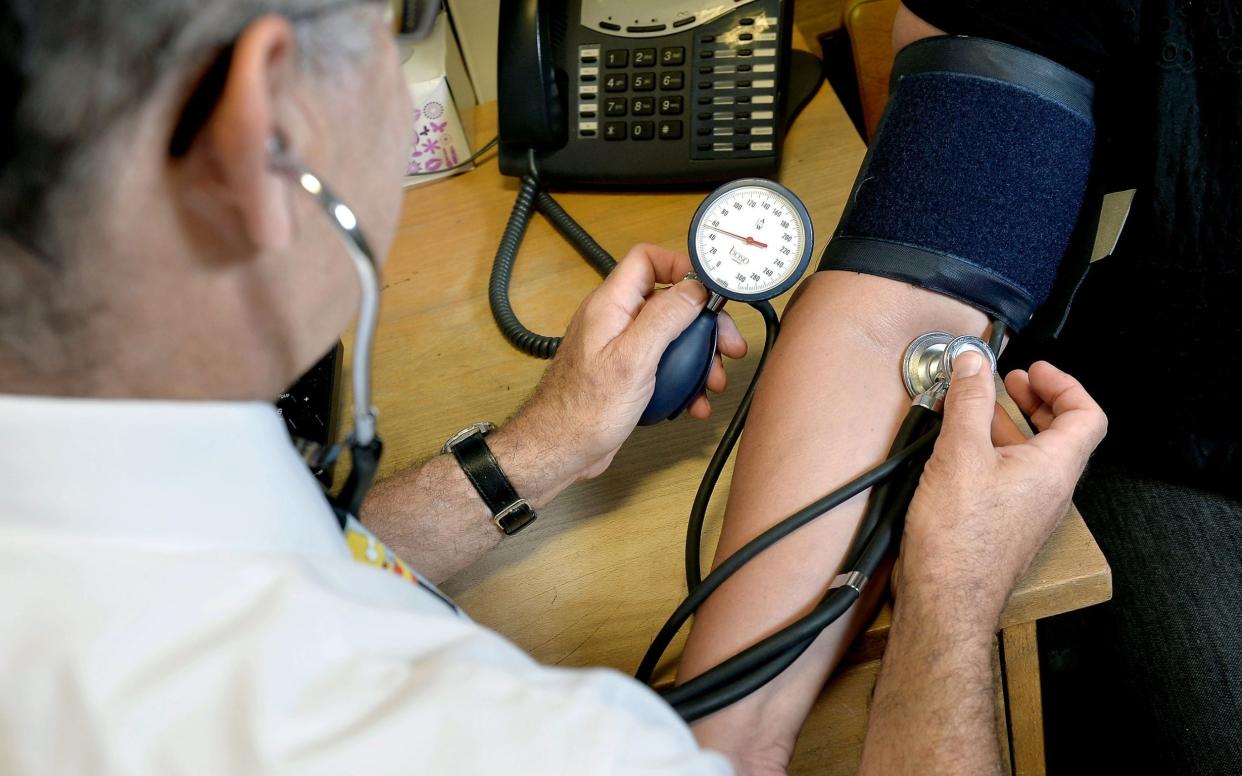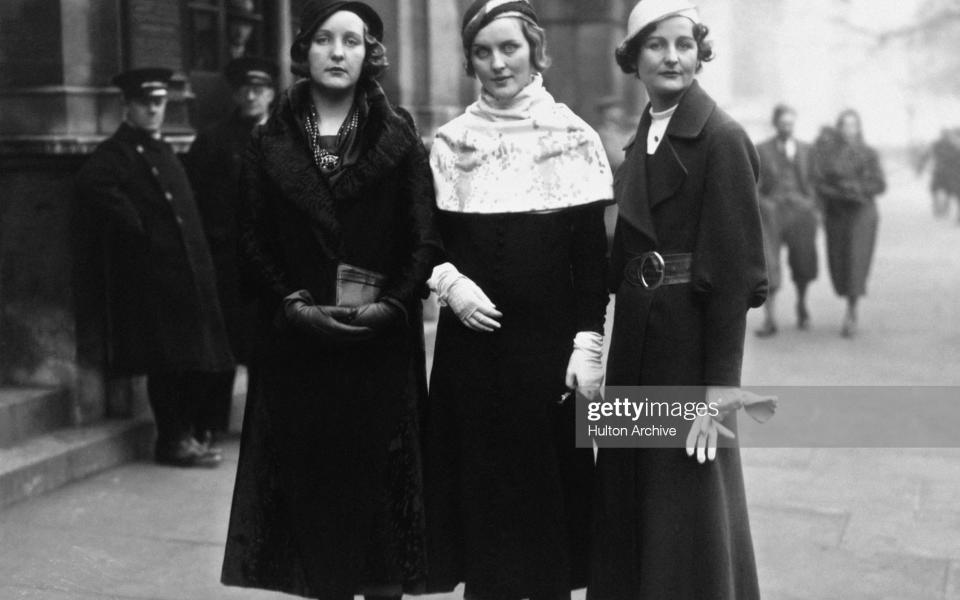Letters: The tedious torture of trying to get an appointment to see the doctor

SIR – I recently needed a district nurse to check something wrong with the leg of a 90-year-old. I phoned the surgery and was told to speak to a GP. For that I must phone first thing in the morning.
At 8.30am next morning I started dialling. On the 123rd call, I got through, to be told I was number six in the queue. By the time I finally spoke to a receptionist, no appointments were left for the morning. I would have to try again at 12 noon.
On the dot of noon I started again. After another 100-plus calls, I got through and was number six in the queue. By the time I got to number two in the queue, it was 1pm, when the surgery closes. The plug was pulled and I was left high and dry again.
How on earth is a 90-year-old supposed to access a GP these days?
Janet Milliken
Folkestone, Kent
SIR – I don’t think GP surgeries realise that contacting them and attempting to see a doctor is extremely stressful and very, very difficult when you are old and feeling ill. When I was unwell three years ago, it wasn’t until a visiting friend handed me the phone that I contacted the surgery. Otherwise I think I would have died sitting in the chair, too tired and ill to help myself.
Doctors do not realise how hard it is for sick people to lift up the phone and wait in a queue for 30 minutes.
Jean Cochrane
Bourne, Lincolnshire
SIR – Letters from people who state that GP surgeries are holding face-to-face consultations come from doctors or from representatives of medical organisations, such as Dr Nikki Kanani, the medical director of primary care of NHS England (Letters, May 7).
My husband is dying and, although he is at home, he is under the palliative care team at a hospice. They are available to me, and to him, 24 hours a day and are truly amazing.
It is, however, a drastic way to get medical help.
Elayne M Benjamin
London NW4
SIR – Dr Kanani wrote to all GPs on September 14 2020: “Many of you will be aware of reports by some patients that they are experiencing difficulty in accessing their GP for needed face-to-face appointments. We are writing to you to reiterate the importance of providing face-to-face appointments.”
Dr Gregory Tanner
Middlezoy, Somerset
SIR – I have been doing research into types of medical practitioner in the 18th century. Physicians (the ones with a medical degree) were not expected to examine the patient, instead using history alone to reach a diagnosis.
Is this where 21st-century general practice is heading?
Incidentally, I managed to see my own GP during lockdown. My tips for getting past the receptionist are to be pushy, sure of your ground and in possession of a medical degree. I then had to shout my name through the surgery letterbox before being let in.
Dr Hilary Aitken
Kilmacolm, Renfrewshire
Monumental folly
SIR – It seems as if the woke leadership that alienated Labour supporters with metropolitan assumptions that they were stupid and racist is now running the Church of England.
As congregations return to the buildings from which they have been largely excluded during the pandemic, they are being asked to consider church monuments and their links to slavery (Letters, May 12).
In 40 years of priesthood, I have never known a monument to inspire anyone to take up slavery or think racist thoughts.
It is said that the aim is not to abolish history. I disagree.
At this critical time of rebuilding a broken Church, worshippers should be welcomed back, not rebuked for not being woke. Let God be the judge on memorials, as indeed he is of us all. Christians have other priorities.
Canon Keith Punshon
Dalton, North Yorkshire
Treasure trove
SIR – After my husband died I put the house on the market. The day before completion, I went to the empty house for a last look. In my husband’s study I noticed a loose panel inside a cupboard (Letters, May 5). Behind it I found a box of gold coins. He had never told me about them or the hiding place.
Sue Johnson
Swanage, Dorset
Where to get garlic
SIR – Like Derek Foster (Letters, May 10), I was appalled to find that Tesco and Asda import garlic from China.
I now buy my garlic from Lidl. It’s both Spanish and cheaper.
Leslie Wakeford
Sowerby, West Yorkshire
SIR – The answer is to grow your own garlic – which could not be easier – in pots if garden space is unavailable. Then no air miles are involved.
Lesley Snell
Hoylake, Cheshire
Legislation with bite
SIR – Does George Eustice, the Environment Secretary (report, May 9), realise that the world’s deadliest snakes, such as the black mamba and king cobra, will come under the Animal Sentience Bill? Perhaps MPs should undergo a snake-pit test before voting.
Rev Philip Foster
Hemingford Abbots, Huntingdonshire
Checks on gamblers
SIR – Two million people in the UK are affected by problem gambling – with, on average, one gambling-related suicide every day.
Urgent action is needed, and measuring affordability is key. Currently, however, only some companies check that customers aren’t gambling beyond their means.
The Gambling Commission has consulted on compulsory affordability checks for all operators. However, the Government now intends to strip the watchdog of its power to impose such checks (report, May 4). This is a statutory power which cannot be removed without legislation.
We hope that the Gambling Commission will persist with its plans, so that vulnerable gamblers do not have to wait many more years for the Government to make good its election promise to tackle gambling addiction.
Lord Foster of Bath (Lib Dem)
Chair, Peers for Gambling Reform
London SW1
Vaccinated visitors
SIR – My family and I will visit the UK from Hong Kong, a city of seven million people averaging fewer than one local case of Covid a day.
We are fully vaccinated and must test negative before flying. On what scientific and legal basis can we, as British citizens, be judged a risk and forced to self-isolate for 10 days?
Jonathan Evans
Hong Kong
Care conundrum
SIR – I began my career in social work in 1965. The hot topic at that time was how social care and healthcare could better work together. That conundrum remains, not because of resource constraints but simply because of the intractable question at its heart: who controls the resulting service?
Is it to be local government, through locally elected members, or central government through Parliament? Therein lies the rub: the control of social care is locally determined but within parameters set by central government. The control of healthcare is firmly embedded in Whitehall. Neither entity is likely to give ground.
The problem, therefore, is not about resources but power.
Robin SeQueira
Former Director of Social Services
Dorset County Council
Lytchett Minster, Dorset
Ever-closer drinking
SIR – I read with interest your report (May 11) that strangers who drink alcohol move one centimetre closer every three minutes, but hoped that the researchers would extend their graph to a time frame of five hours or more, to include day-drinking events.
What, for example, happens at weddings? At Henley Royal Regatta? At Wimbledon?
Alice Loxton
London W1
Self-walking dogs
SIR – Tim Stanley (Comment, May 10) says dogs do not take themselves for a walk.
When I was a child in Surrey in the 1940s, living a few minutes’ stroll from the river Thames, our little dog (a mongrel) would often take himself to the river for a swim and return home to be towelled dry before being allowed back indoors.
These swims, plus a rather restricted diet due to the war, were clearly good for him, as he lived to the age of 16.
Joyce Nicholson
Bishopsteignton, Devon
Shops we came to rely on during lockdown

SIR – The lockdown seems to have brought shoppers back to village shops, with fishmongers, butchers and greengrocers all doing well.
Charles Moore (Notebook, May 11) rightly laments the closing of his local butcher’s shop. I was brought up in the adjacent village of Burwash in the 1960s and I recall a flourishing wheelwright, a chemist, vet, doctor, forge, a garage, seed merchant, grocer, an old-fashioned sweet shop/tobacconist selling gobstoppers in jars, a village store and five pubs – two of which remain.
There was also Jarvis the butcher, about which Lord Moore writes. It frequently has a small queue outside, which must be a comfort to the owner and also to us locals – to whom the message must be “use it or lose it”.
Neil Mackwood
Dallington, East Sussex
The upper classes, according to Nancy Mitford

SIR – Shirley Page (Letters, May 11) spotted errors in the BBC’s The Pursuit of Love. There are more.
The fox hunting scenes position hounds within easy kicking distance of horses’ hooves, when they would be quite apart from the followers and with the huntsman. Aristocratic wedding receptions in the 1920s did not feature a few dreary tables of six. In those days, they took the form of a glorified drinks (champagne) party, a great number of people jostling together and possibly getting exceedingly drunk.
Why did Lily James walk in as if going up the aisle, while the groom waited at the far end of the room?
The bright spot was Dominic West’s portrayal of an overbearing father.
Marian Waters
Pebworth, Worcestershire
SIR – When taking visitors round his home at Leixlip Castle near Dublin, Diana Mitford’s son, the late Desmond Guinness, used to gesture to a row of portraits of the six Mitford sisters, declaring: “Fascists to the right, communists to the left”.
The Mitford sisters covered the political spectrum, and to write them all off as “fascist Nazi collaborators”, as Tracy-Ann Oberman did (report, May 11), is inaccurate and crass.
Roger White
Sherborne, Dorset
SIR – I can forgive the hairstyles being wrong, and even hunting in midsummer, but why can’t the BBC produce something that is audible?
I am not deaf, but however far I turned the volume up, all I could hear was mumbling.
Wendy Tanqueray
Esher, Surrey
Letters to the Editor
We accept letters by post, fax and email only. Please include name, address, work and home telephone numbers.
ADDRESS: 111 Buckingham Palace Road, London, SW1W 0DT
FAX: 020 7931 2878
EMAIL: dtletters@telegraph.co.uk
FOLLOW: Telegraph Letters on Twitter @LettersDesk

